Yemen crisis:
Six years of devastation
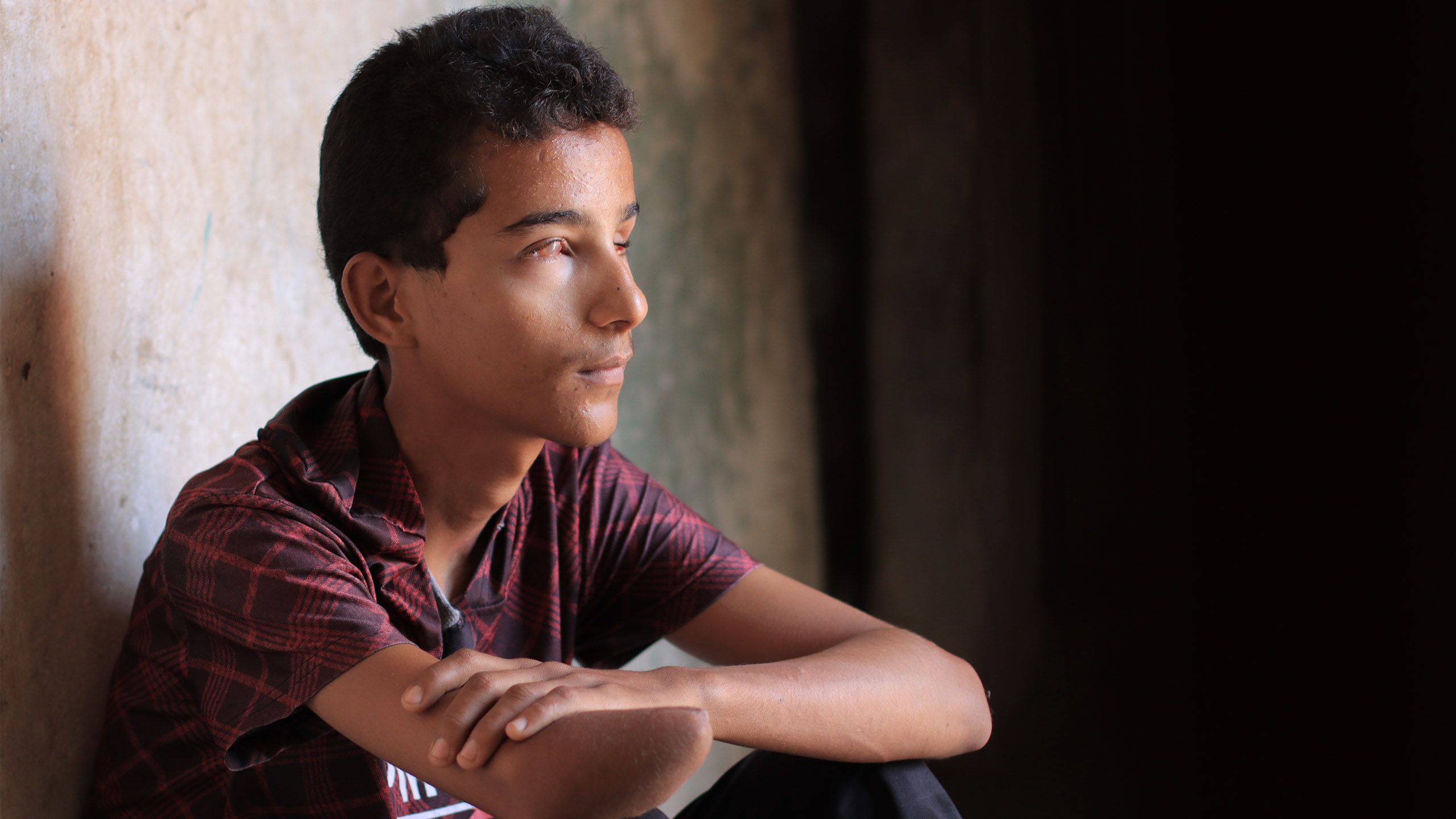
This week, the war in Yemen enters its seventh year. The country is once again hitting the headlines because a new famine warning is threatening millions of people. But this is only the latest in a series of tragedies for the nation, all of which are rooted in the unending conflict and all of which could have been prevented.
Six brutal years of airstrikes, mortars, gunfire, fear and destruction have left the country almost unrecognisable today. The coastal city of Aden, once a popular holiday destination, is choked with rubble and ruins. Farmland that flourished green and productive for generations is left barren. Electricity networks are down and hospitals have been destroyed or have run out of supplies.
An estimated four million Yemenis have fled their homes in fear and over 20 million are in need. Whether it is the schools that children once attended, or the roads that cities once relied on for food supplies, no facet of ordinary life has been left unaltered.
For humanitarian organisations, trying to stave off famine in these conditions is an uphill battle. When Covid-19 first reached Yemen, families told us they had to focus all their energies on finding the next meal, so worrying about the virus came second.
Now the country is enduring unthinkable aid cuts, narrowing the window of assistance even further. And every day, more destruction takes place: another clinic, home or school is struck, more people flee gunfire and bombs, and more children starve.
A question people ask again and again is:
“Why has the world abandoned us?”
In collaboration with local Yemeni photographers, the Norwegian Refugee Council (NRC) spoke to families across the country about their lives before the war began, and asked them to show the world how they live now. These are just some of their stories.
NRC works to support refugees and displaced people in over 30 countries around the world, including Yemen. Support our work today.
Ahmed
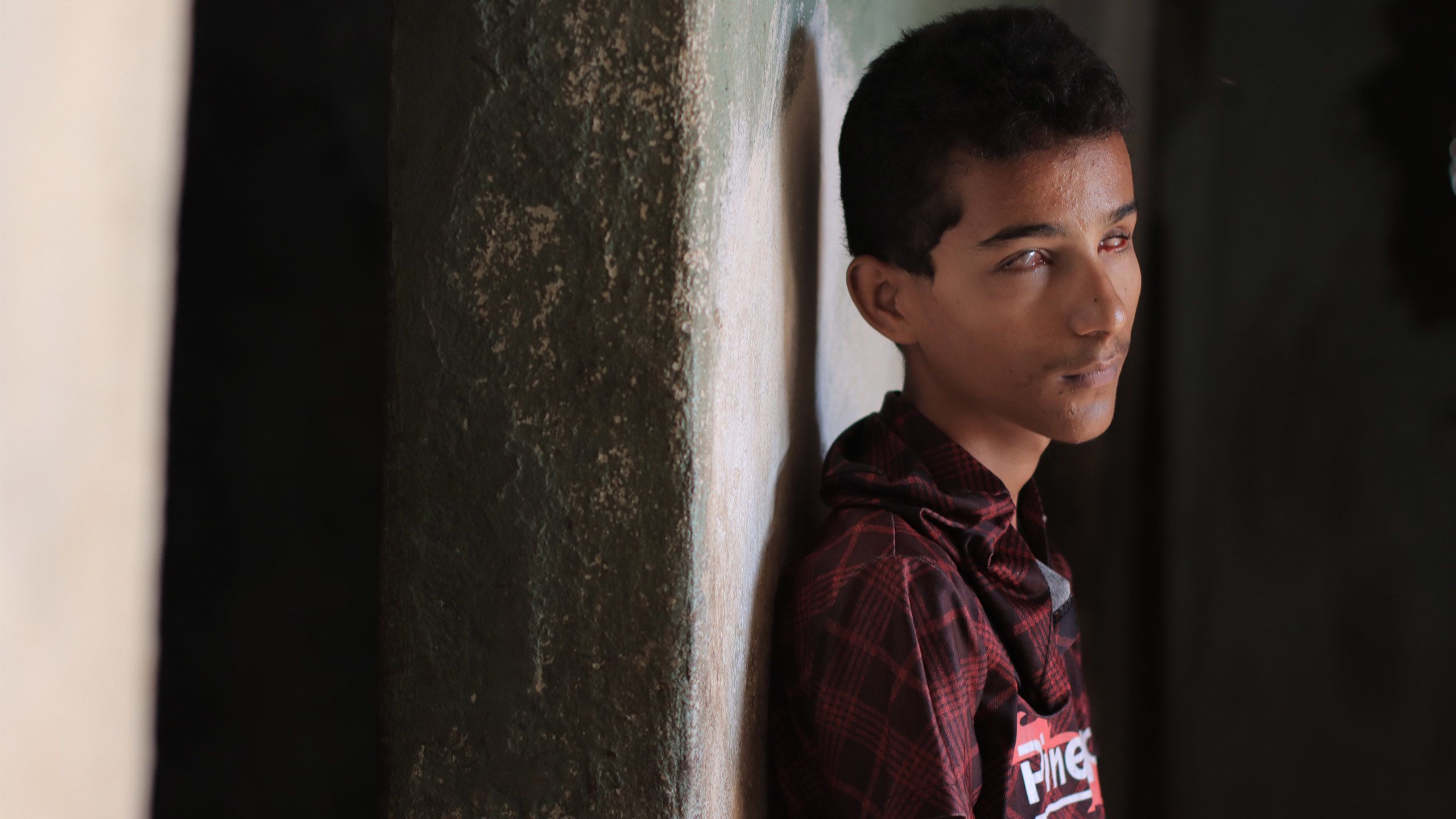
Ahmed Abdullah was 11 years old when his sister picked up an object and threw it. It turned out to be an explosive device, left behind after fighting swept through their home village in Lahj a few months earlier.
“Everything went dark,” Ahmed says. “I was taken to hospital, but it is still dark even now.”
Ahmed lost his sight, and one of his hands. His brother was killed. Almost every type of explosive weapon has been used during the war in Yemen, with unexploded devices still littering the country.
Statistics often focus on those killed, but injuries also shatter lives. Ahmed, now 17, does his best to bring in money by uploading phone credit for others.
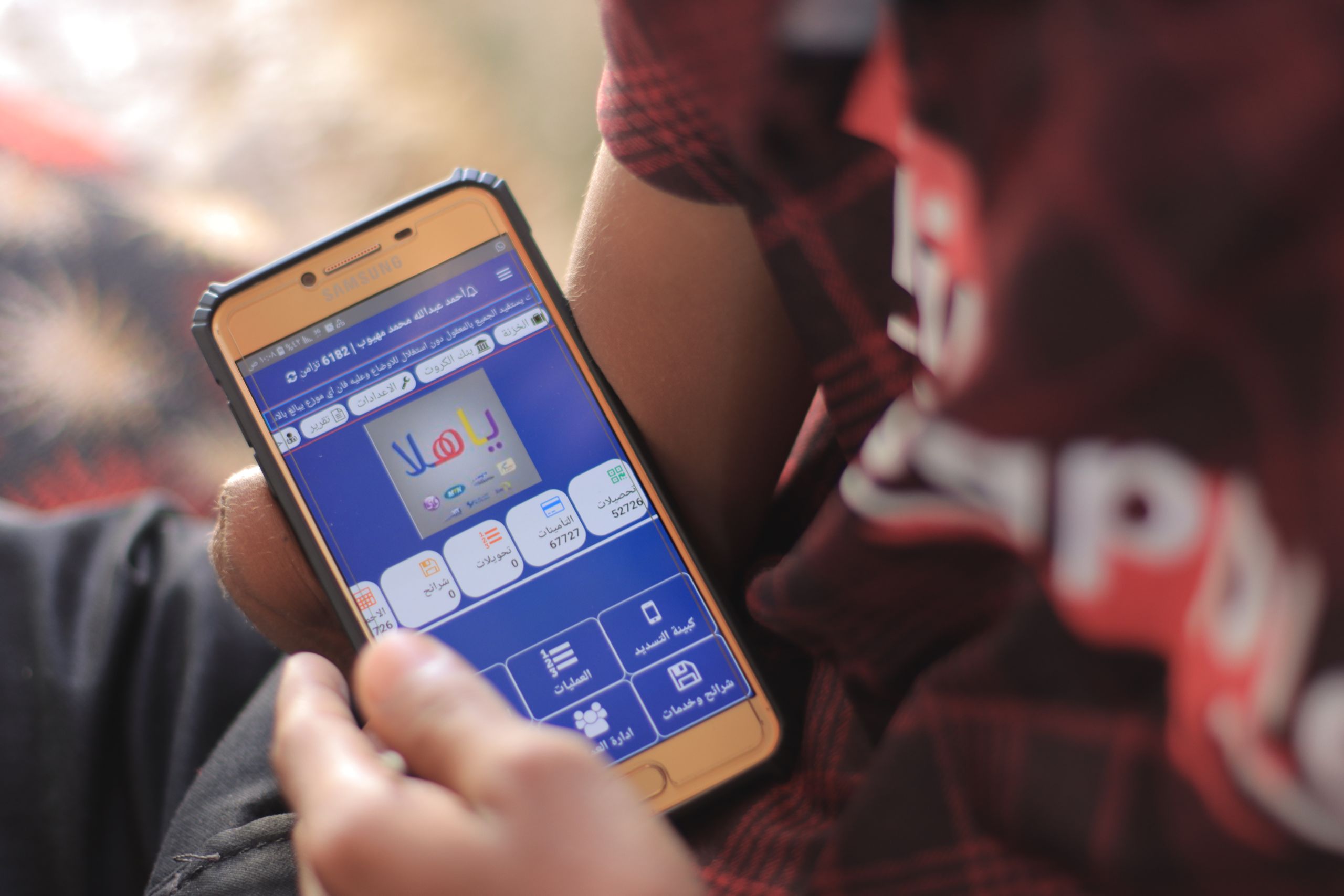
Photo: Mahmoud Al-Filastini/NRC
“I haven’t been able to study as there is no school for blind children here,” he says. “I can’t live like other children my age. But I’m trying to enjoy life.”
A third of deaths and maimings from landmines and unexploded ordinances in Yemen last year were children. Ahmed’s sister was among them: a device exploded while she was clearing garbage, injuring her for the second time.

Photo: Mahmoud Al-Filastini/NRC
Photo: Mahmoud Al-Filastini/NRC
Maher
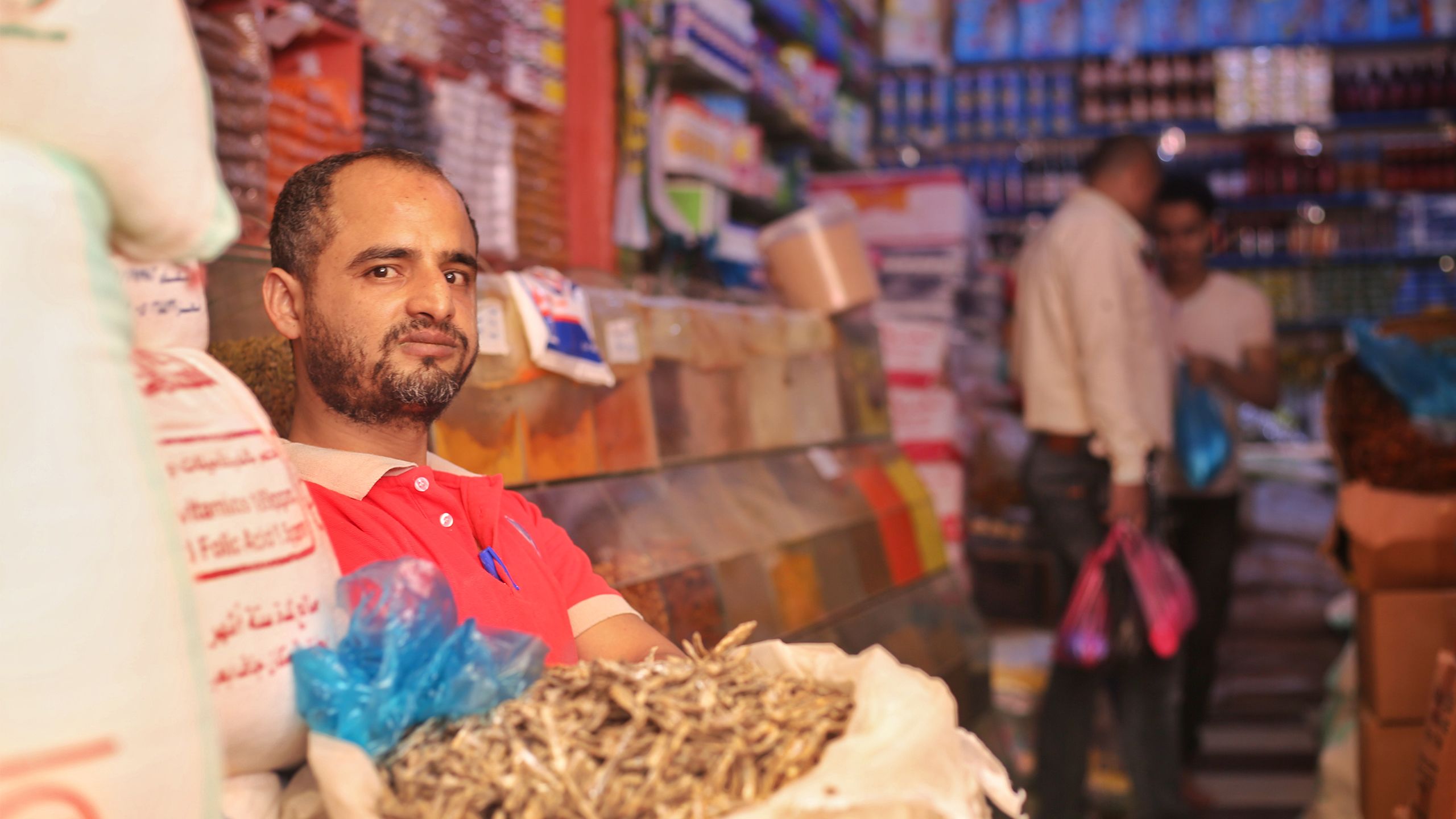
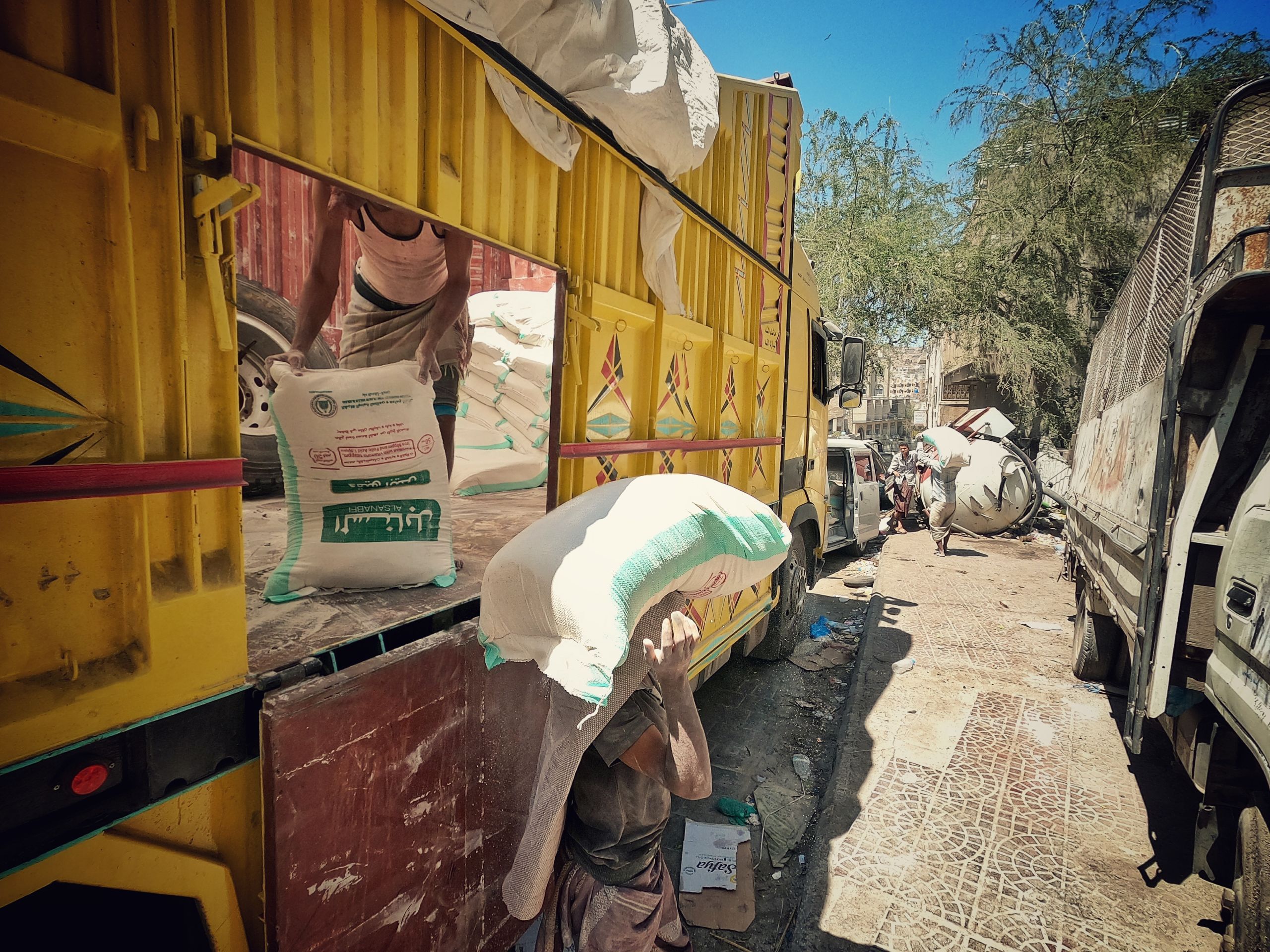
Photo: Khaled Al-Banna/NRC
Photo: Khaled Al-Banna/NRC
Since the start of the war, shopkeeper Maher Al-Shaibani has seen the price of transporting flour quadruple, pushing up food prices in a country where many are already starving.
“The main roads into Taiz city are blocked,” he says, “so we have to bring our goods through valleys and mountains where the big trucks can’t move. It used to take five minutes from the city to Al-Hawban, and now it takes five hours.”

Photo: Khaled Al-Banna/NRC
Flour sacks are unloaded outside Maher’s shop. “We hope that the roads reopen, and we can travel and bring goods safely, like before. The blocked roads play a major role in raising food prices, and many people can’t afford it now,” he says.
NRC works to support refugees and displaced people in over 30 countries around the world, including Yemen. Support our work today.
Muhsanah
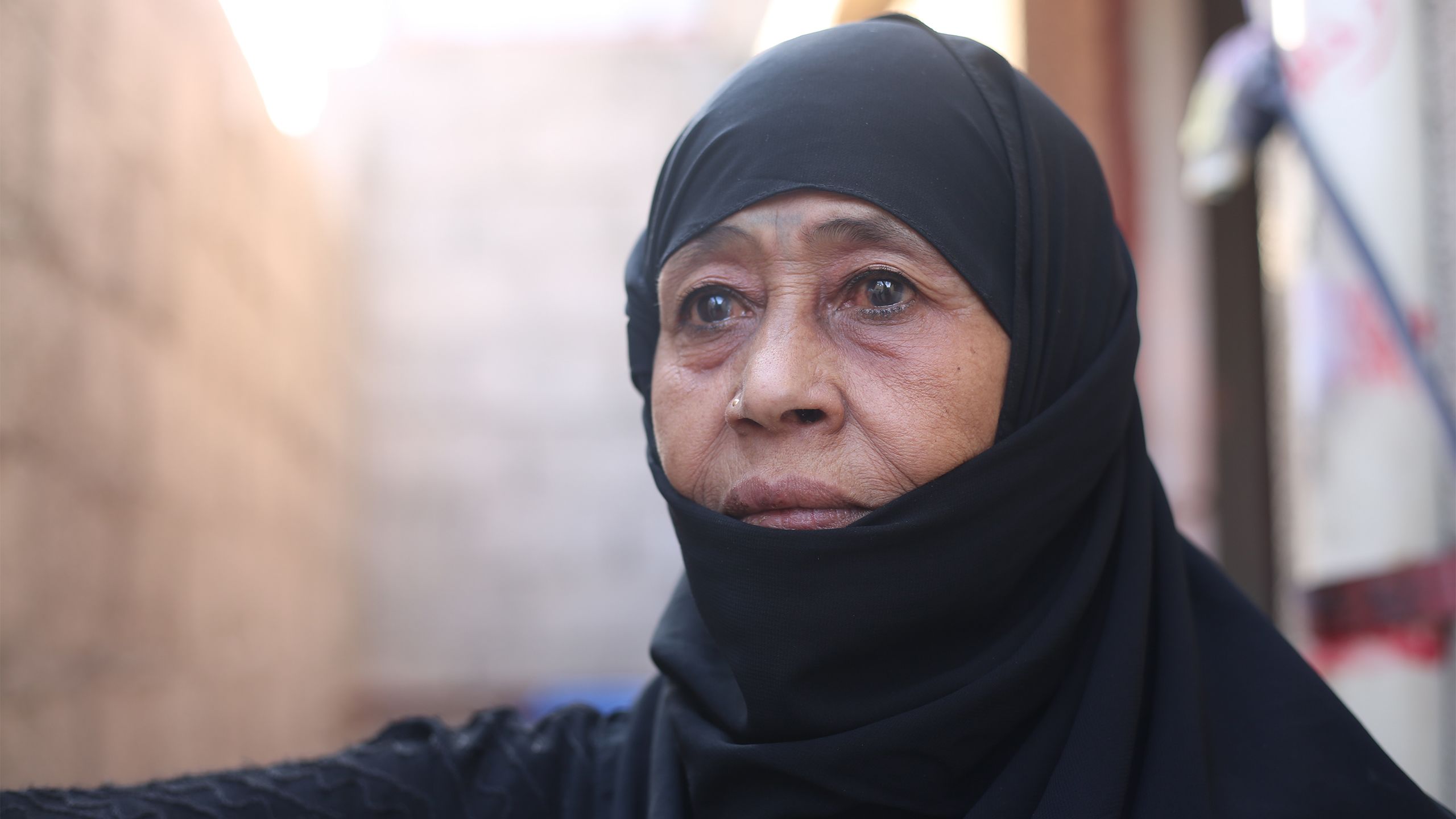
Before the war, Muhsanah Al-Odaini’s husband worked in Saudi Arabia and sent home money.
“Appliances like fridges used to be common for families,” she says. “But since the war began, the power has been shut off. We have forgotten there is this thing called electricity.”
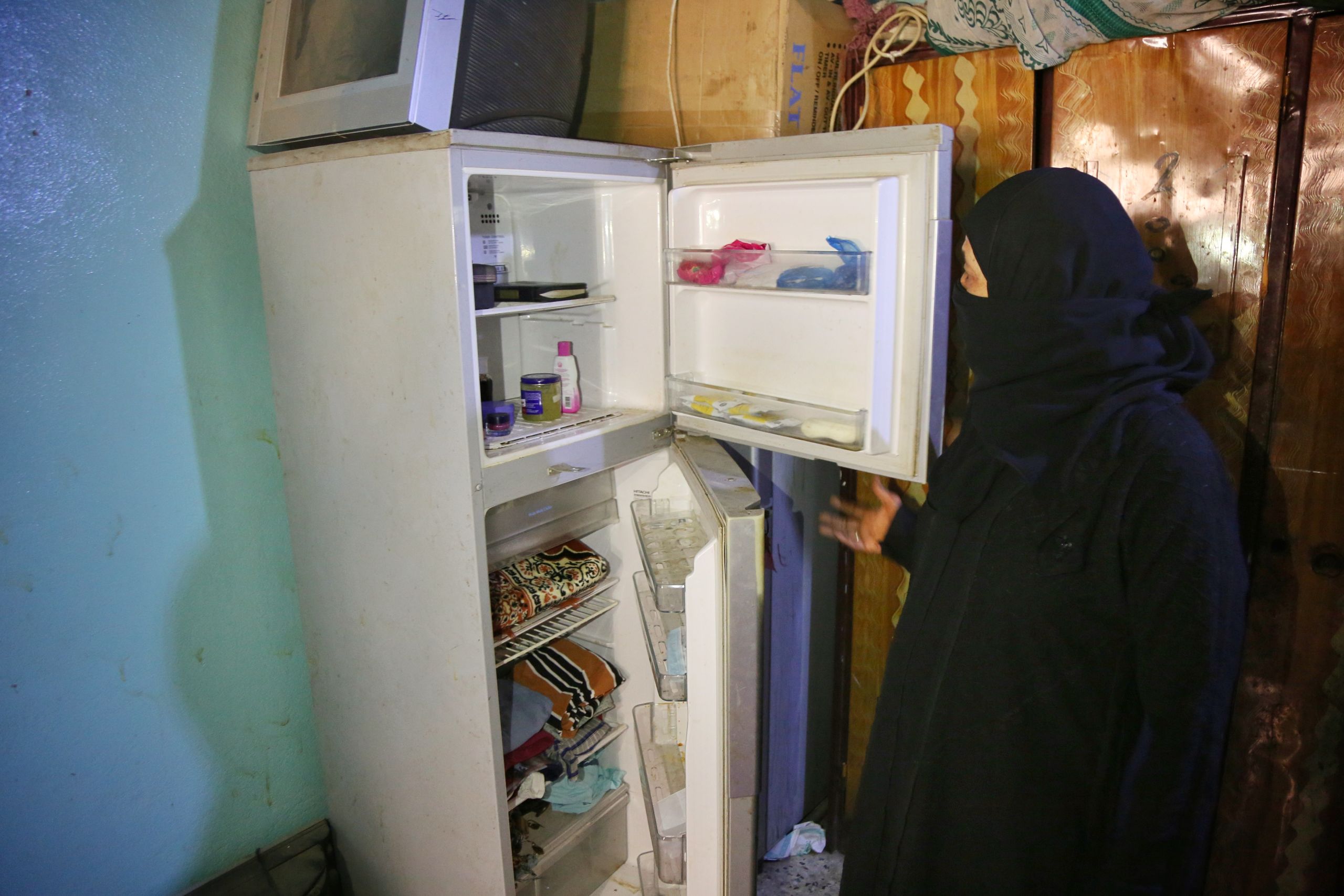
Photo: Khaled Al-Banna/NRC
“We bought solar panels for the lights, but they can’t run the fridge, washing machine or any other machine. We use the fridge as a cupboard now for clothes and other items,” she told us. “My husband tried to sell our appliances, but no-one wants to buy such things.”
Muhsanah’s family now use solar panels to power the lights in their home, but these are often damaged by stray bullets. “We suffer in the dark until we can buy another,” Muhsanah explains.
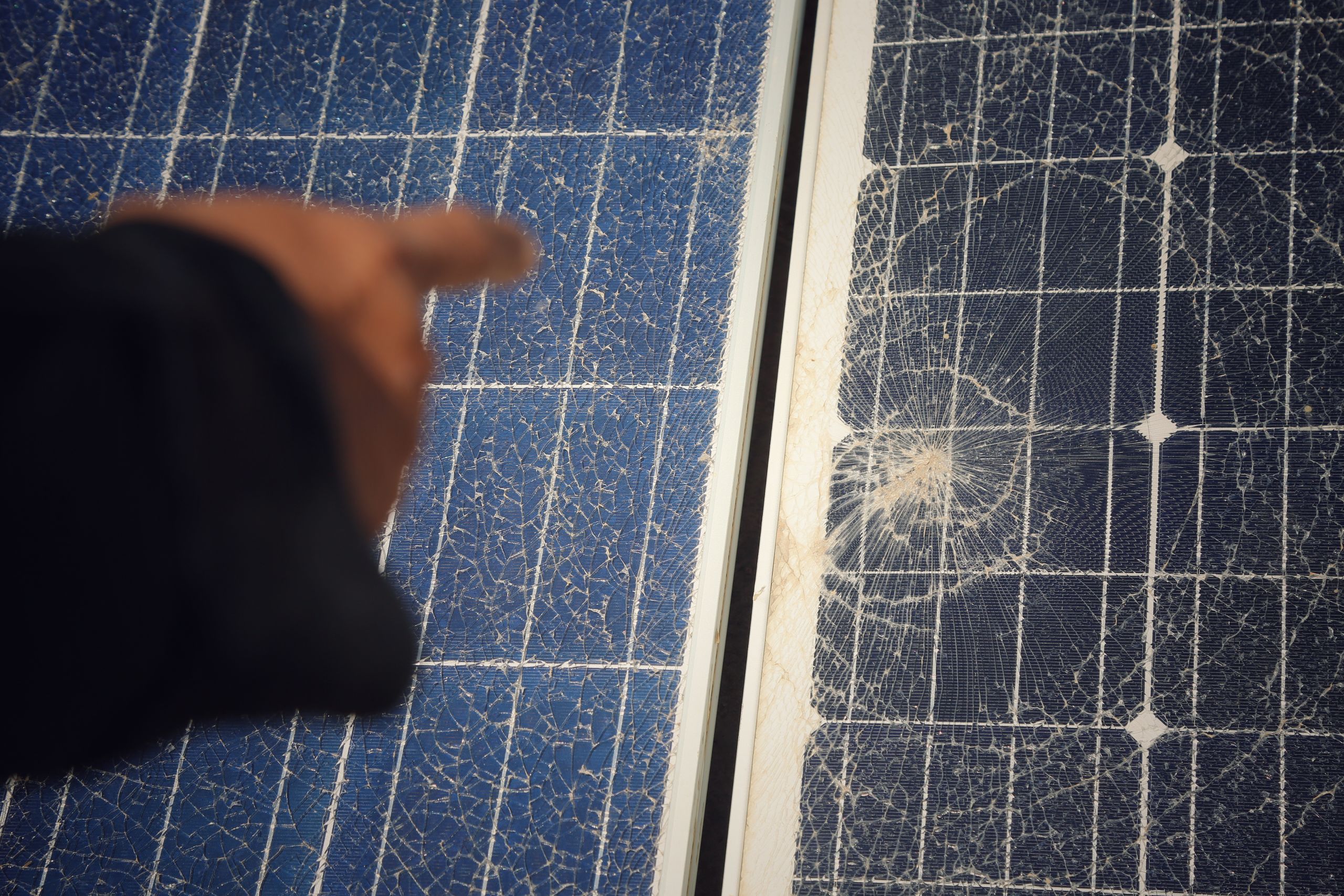
Photo: Khaled Al-Banna/NRC

Photo: Khaled Al-Banna/NRC
Photo: Khaled Al-Banna/NRC

Photo: Khaled Al-Banna/NRC
Photo: Khaled Al-Banna/NRC
Mohammed
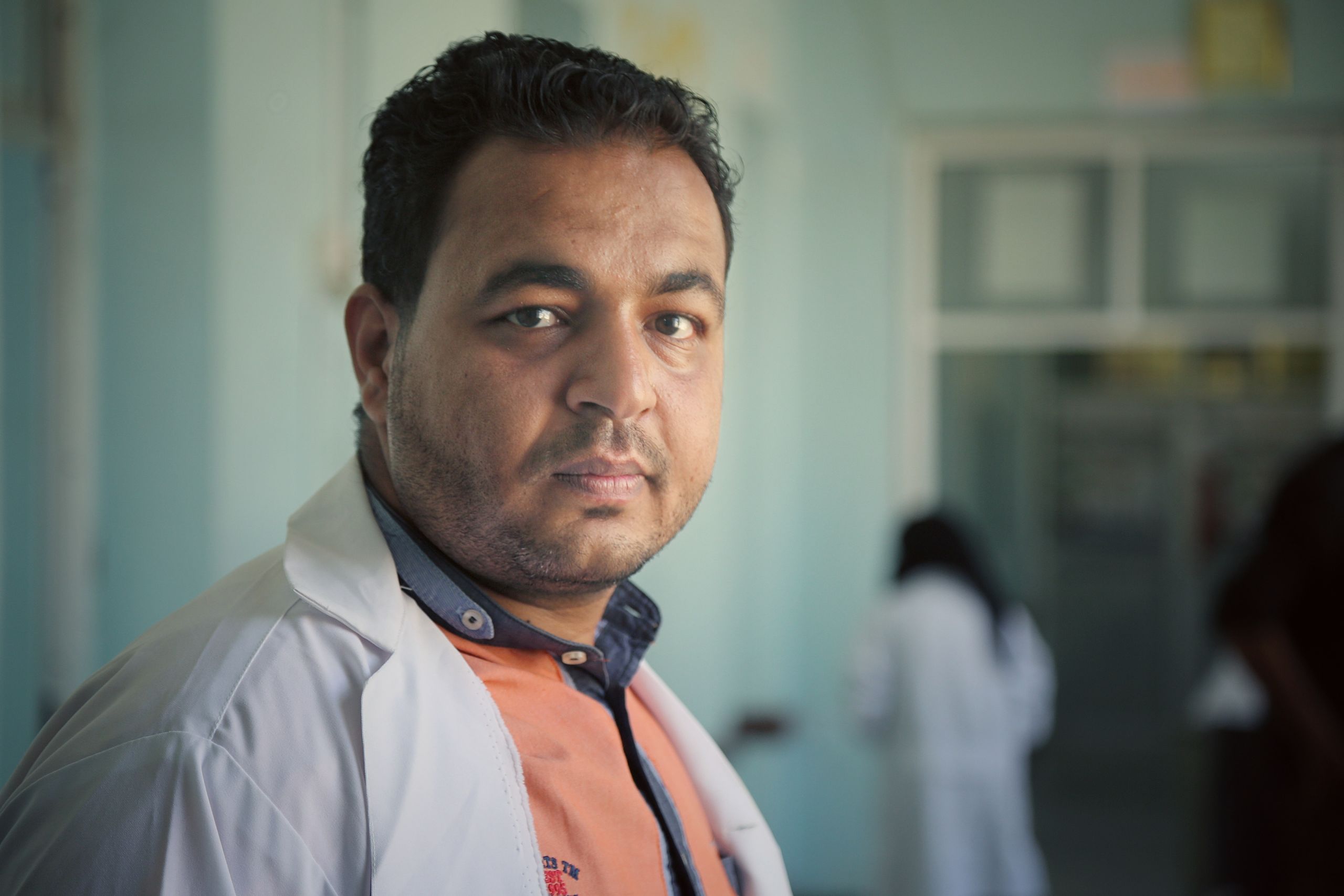
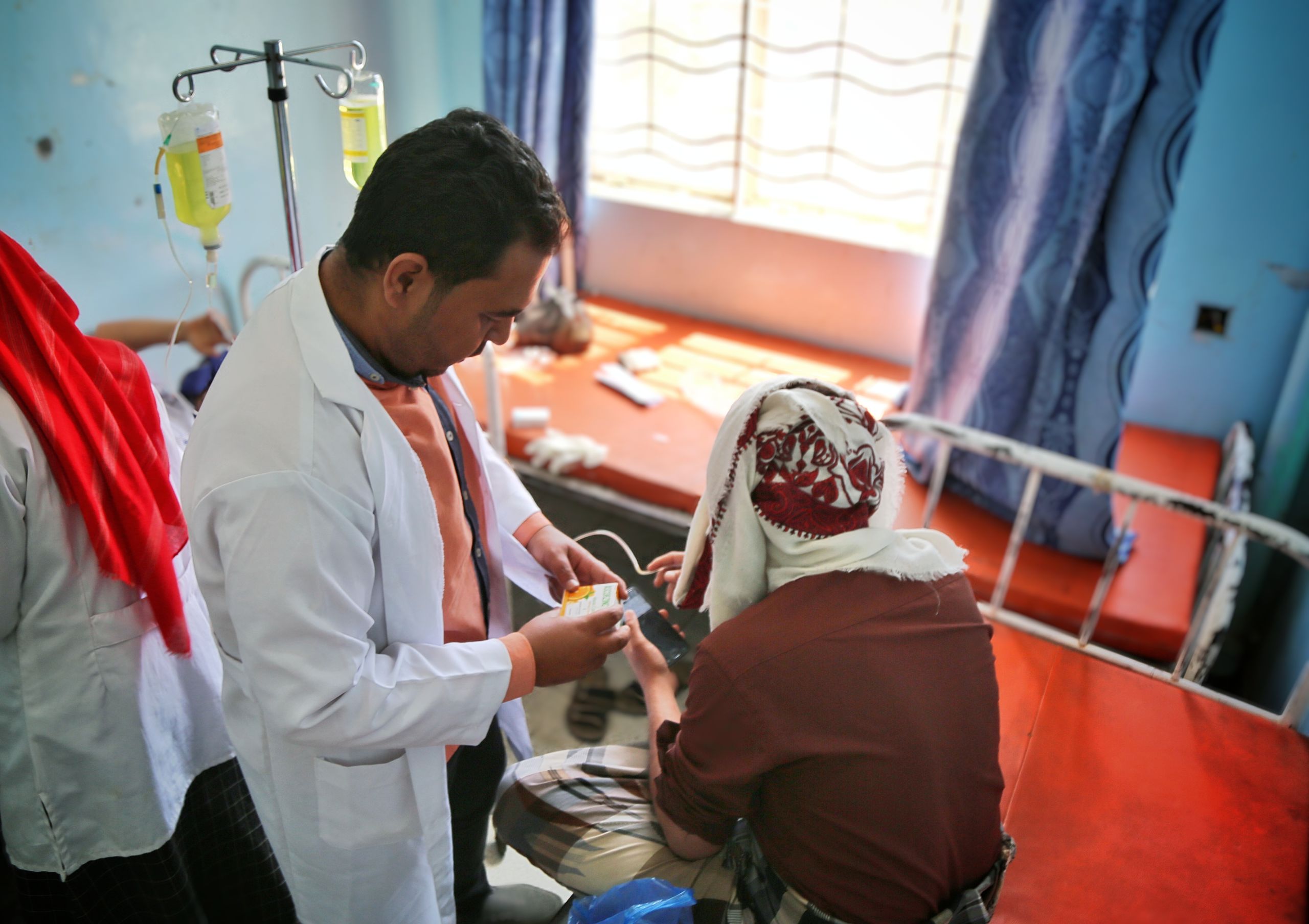
Photo: Khaled Al-Banna/NRC
Photo: Khaled Al-Banna/NRC
Even physicians and nurses are at risk. Dr Mohammed Al-Faqeeh once ran a laboratory in Taiz city, which he had to abandon when fighting swept through the area. When he went back to check on it, he was shot in the leg.
“People took me to Al-Thawrah Hospital,” he says. “But I suffer from that injury still. So now I cannot walk normally like everyone else. The health system is damaged, and there are too many victims of this war.”

Photo: Khaled Al-Banna/NRC
Despite his injury, Dr Al-Faqeeh still works in Al-Thawrah hospital, the same hospital that treated his leg. He has not given up on the laboratory either, and reopened it recently with his mother and youngest brother.
“It isn’t making an income like it did before, but we are trying to do something instead of just staying at home,” he says.
NRC works to support refugees and displaced people in over 30 countries around the world, including Yemen. Support our work today.
Mona
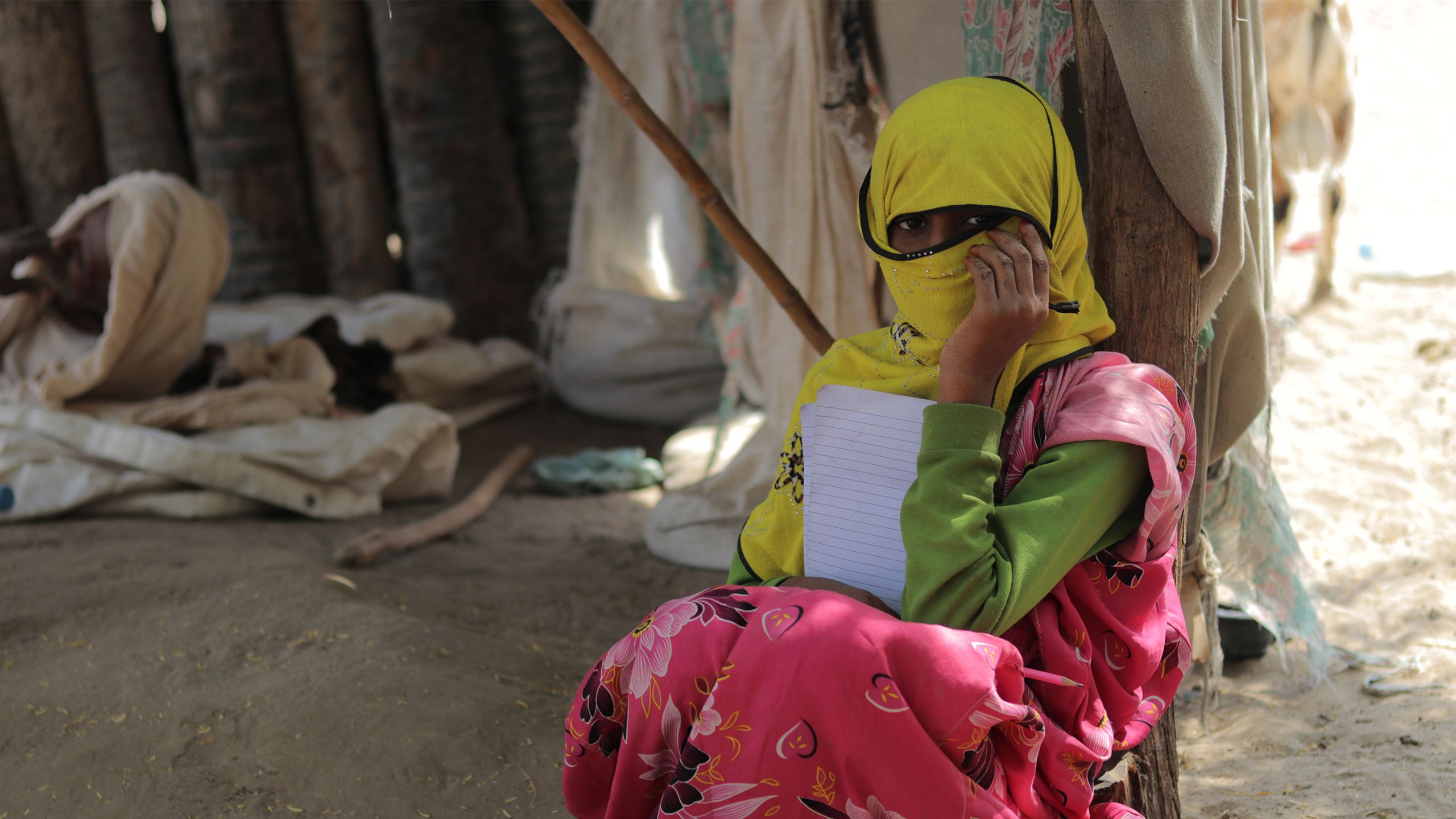
Fifteen-year-old Mona Ali Ayyash and her family fled home in Hodeidah two years ago. Her father Ali explains how life has changed for them: “Before the war, we used to enjoy a comfortable life and had three meals a day. But now we can hardly find enough food for the day.”
“Since coming here, we sleep on the ground. We don’t have blankets, mattresses or anything to put between the ground and ourselves. We fled on foot. I had a donkey, but it was killed by a bullet while we were fleeing. How could I stay at home where bullets are over our heads all the time? It is a frontline.”
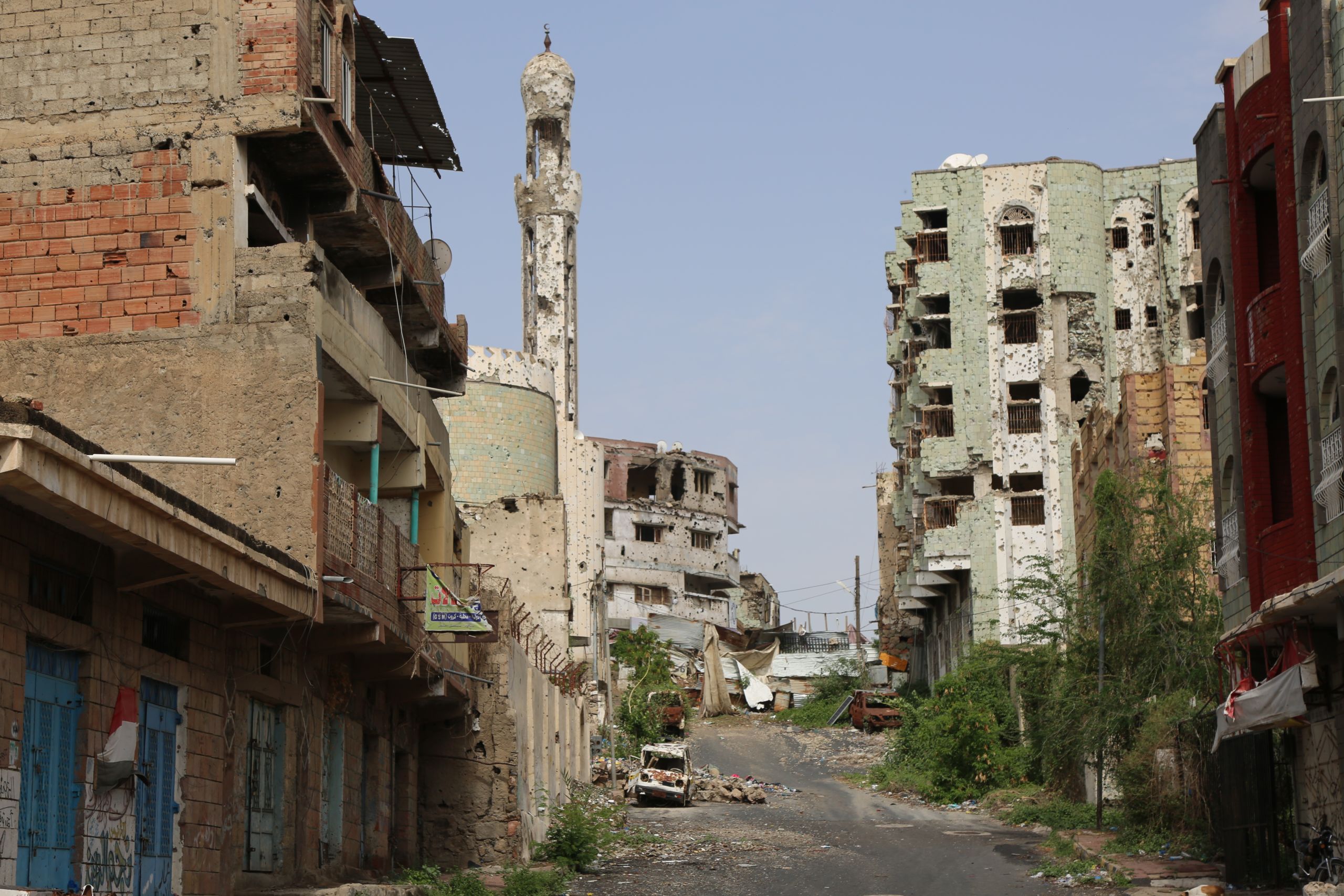
Photo: Khalid Al-Banna/NRC
Photo: Khalid Al-Banna/NRC
The destruction caused by the war is visible everywhere. In Taiz city, once known as Yemen's Capital of Culture, entire neighbourhoods have been reduced to ruins. By 2019, the surrounding governorate had racked up a fifth of all civilian deaths in the country.
Across Yemen, hospitals, schools, homes and water networks have all been hit, crippling the country’s services and decimating the economy.
Abdullah
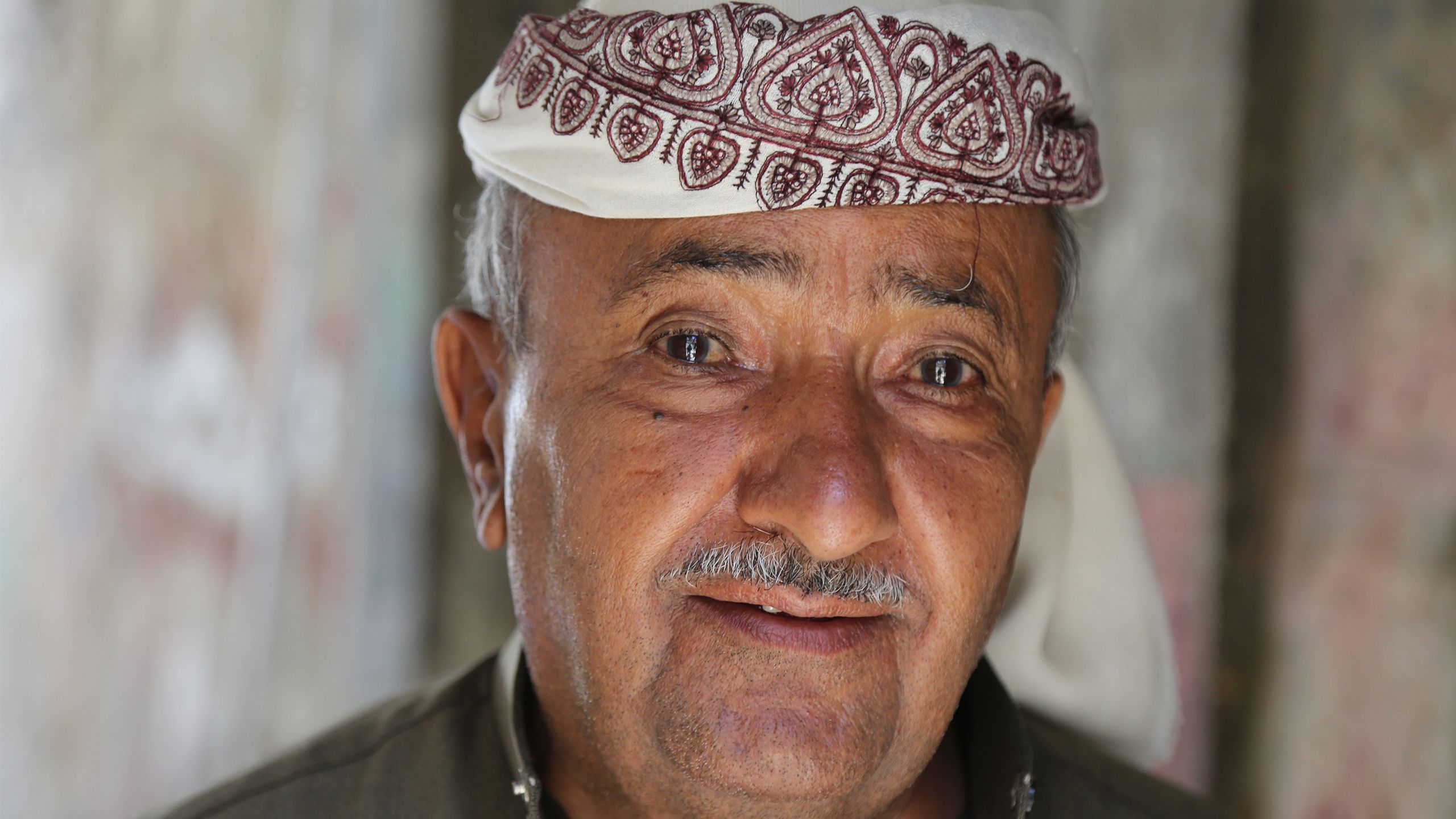
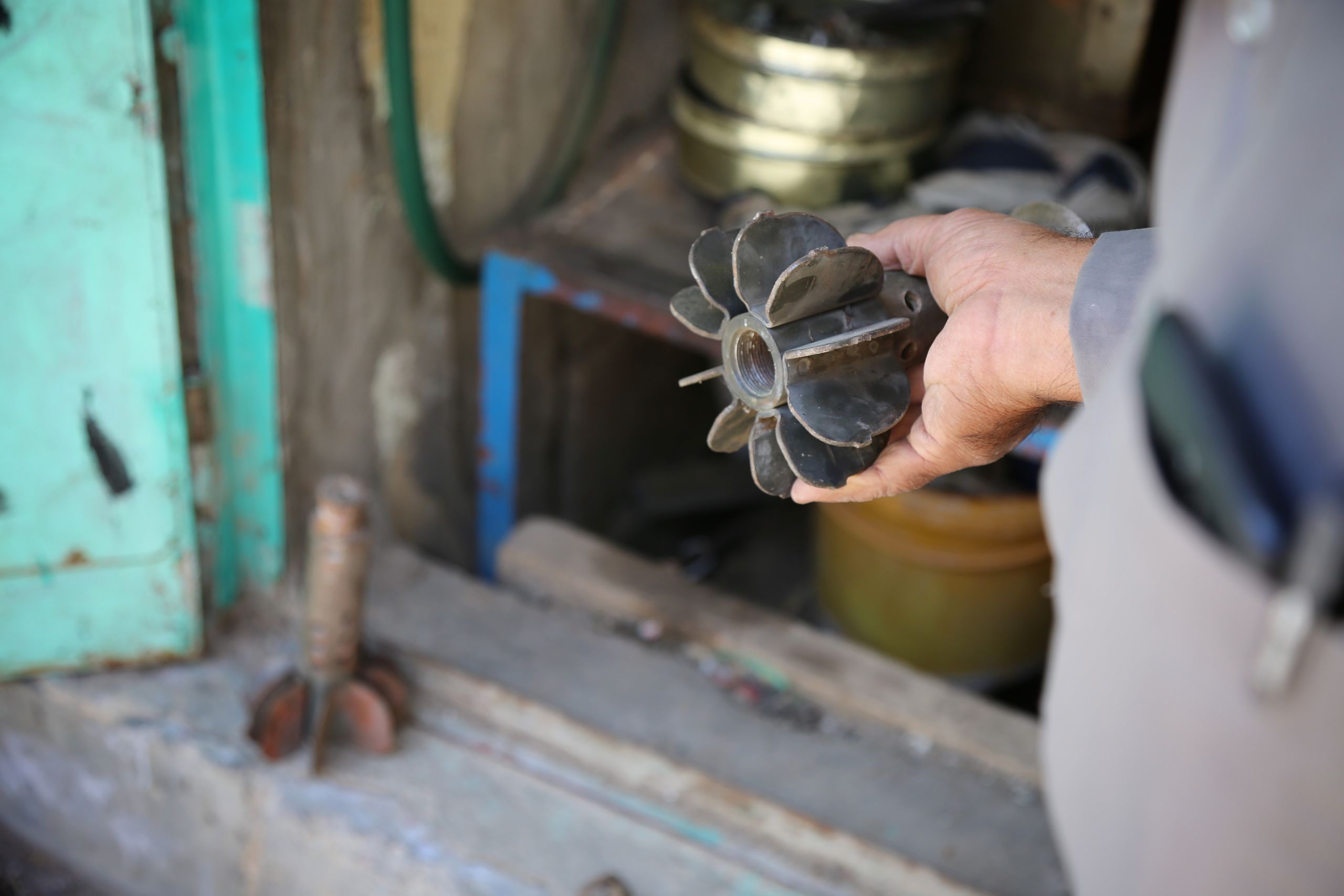
Photo: Khalid Al-Banna/NRC
Photo: Khalid Al-Banna/NRC
Abdullah Hasan Al-Shara’ai once owned a house in Taiz city large enough to rent out to other families, before fighting forced him and his family to flee. When Abdullah returned to check on his home, he found shells had punched holes in the walls and ceilings.
The former landlord is now virtually homeless and unable to pay his own rent. “I lost everything I have. Now we live in two rooms in an old hotel,” he says.

Photo: Khalid Al-Banna/NRC
Abdullah has kept the fragments of the shell that damaged his home and made it uninhabitable. The destruction continues unabated, even now: since the beginning of 2021 alone, an estimated 647 civilian houses have been hit across Yemen.
NRC works to support refugees and displaced people in over 30 countries around the world, including Yemen. Support our work today.
Ahmed
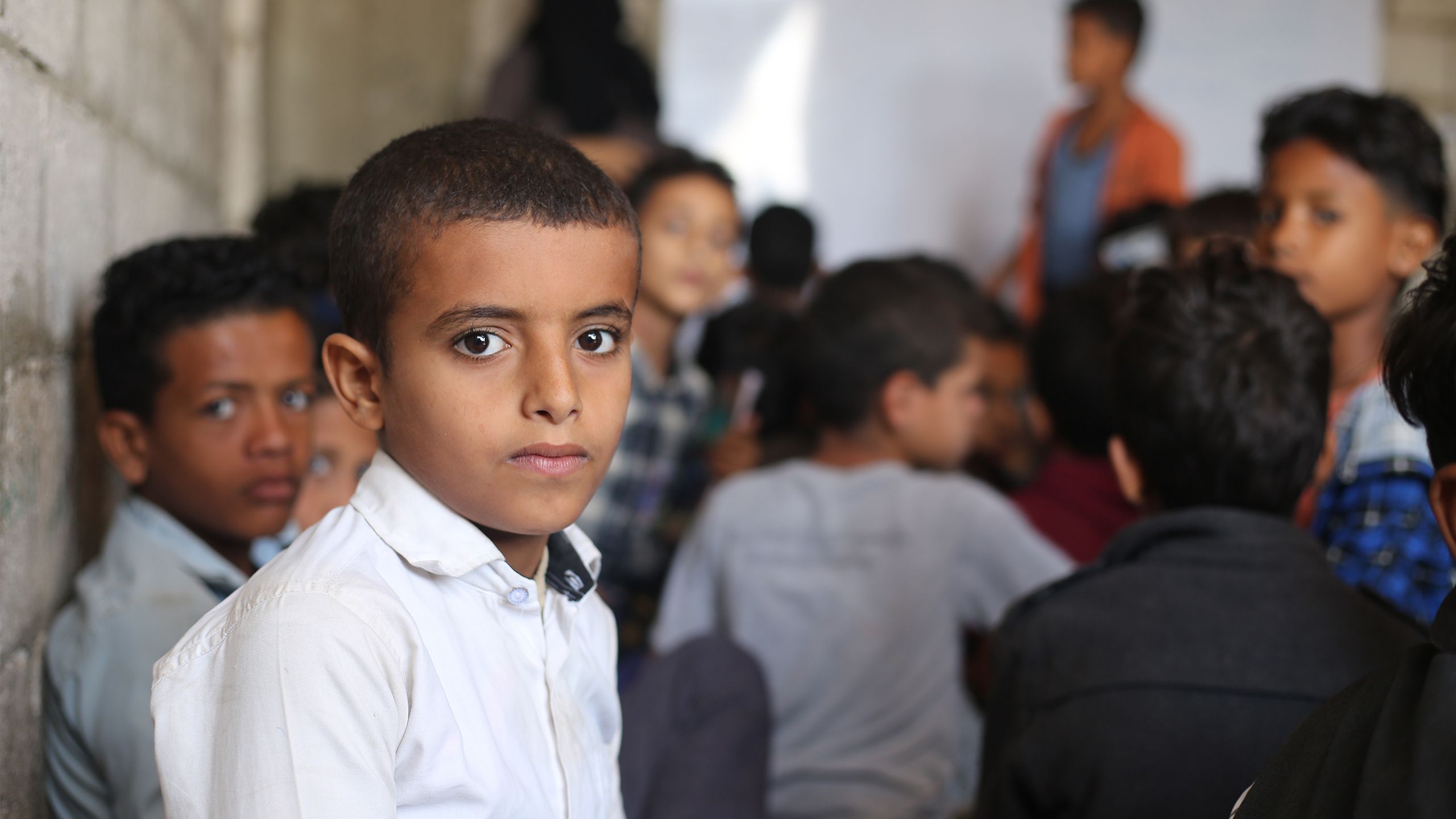
Twelve-year-old Ahmed Al-Yousofi is one of 1,150 children who are using an unfinished house near the frontlines in Taiz as a school.
“It is the only school in our area,” he says. “I go with my two brothers and study in an overcrowded room. Sometimes when we hear the fighting or shelling, we forget what we’re studying and just listen to the sounds, worrying that they might come closer.”
“I want to join a school that is safe and has classrooms, windows, chairs and boards. I want to only listen to the teacher, not for sounds of fighting.”
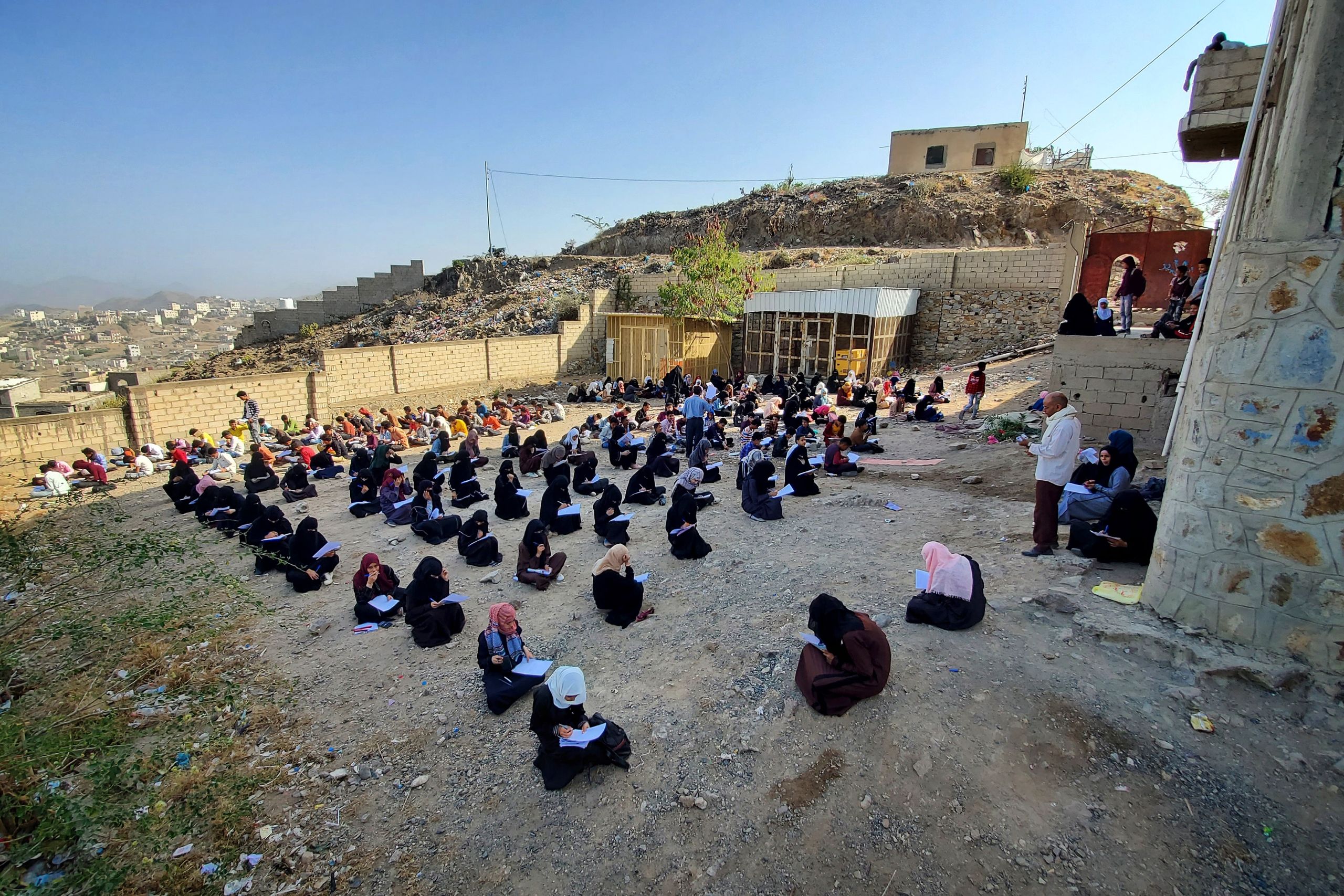
Photo: Khaled Al-Banna/NRC
There are so many children at the house that there is not enough room inside, so some classes take place outside on the ground. Inside, classes are conducted without chairs or tables in overcrowded rooms – even during the Covid-19 pandemic.

Photo: Khaled Al-Banna/NRC
Photo: Khaled Al-Banna/NRC
Naji
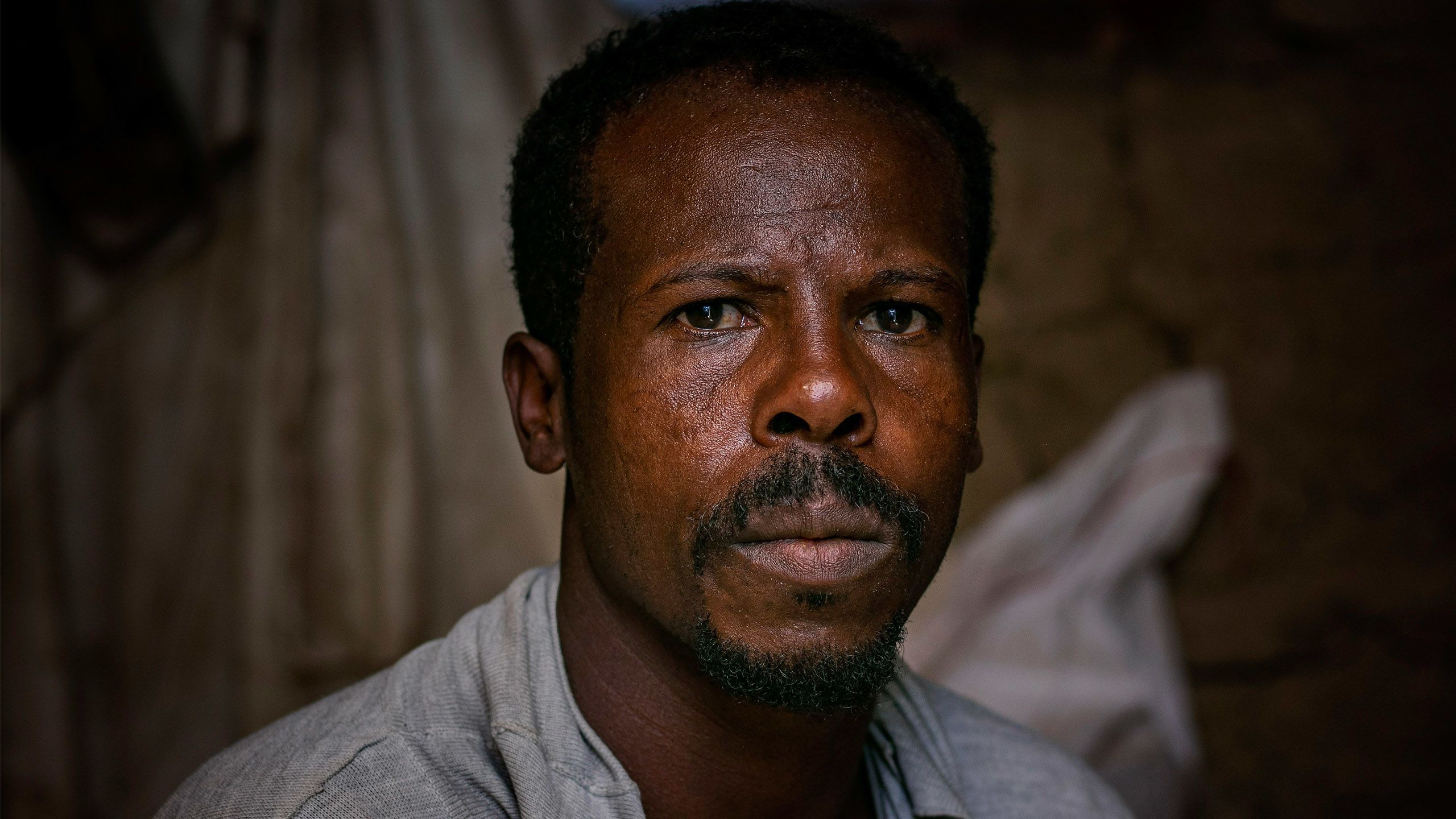
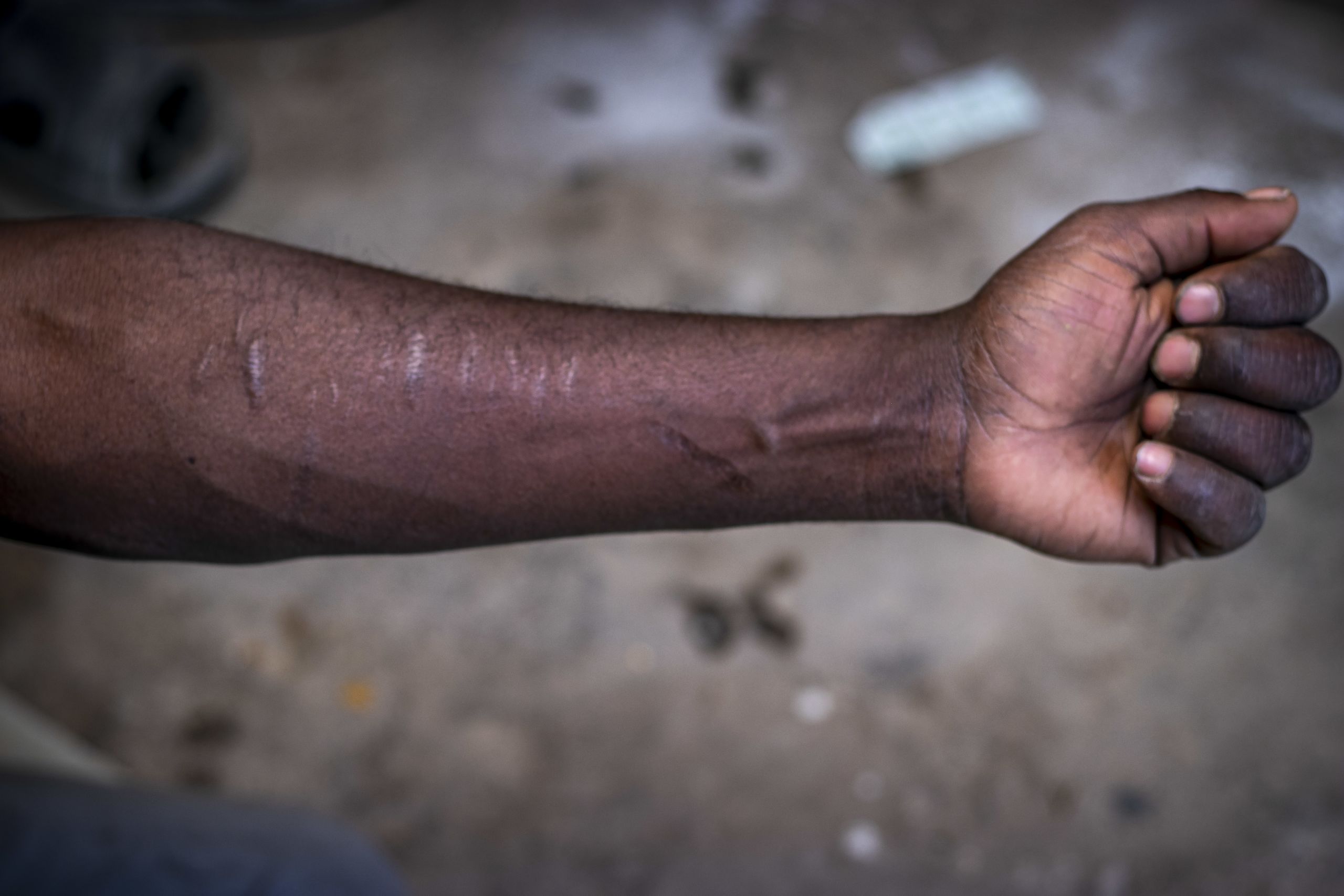
Photo: Mohammed Hassan/NRC
Photo: Mohammed Hassan/NRC
Before the war, Naji Ahmed was a spice-seller near the border with Saudi Arabia. After an airstrike hit his home and killed six of his siblings, he fled to Amran.
“When we arrived in Amran we slept for a week on the street,” he recalls. “Then people helped us with plastic sheets and we settled in this camp. I tried to look for work but in the end I had to ask my children to beg in the market. We eat leftovers from restaurants. That’s our main source of food.”

Photo: Mohammed Hassan/NRC
Naji Amhed displays the scars from the attack that killed six of his siblings. “I regained consciousness in the hospital. My leg and hand were injured. My wife was traumatised by seeing one of the burnt bodies. She still suffers from that trauma to this day.”
NRC works to support refugees and displaced people in over 30 countries around the world, including Yemen. Support our work today.
Muhsen
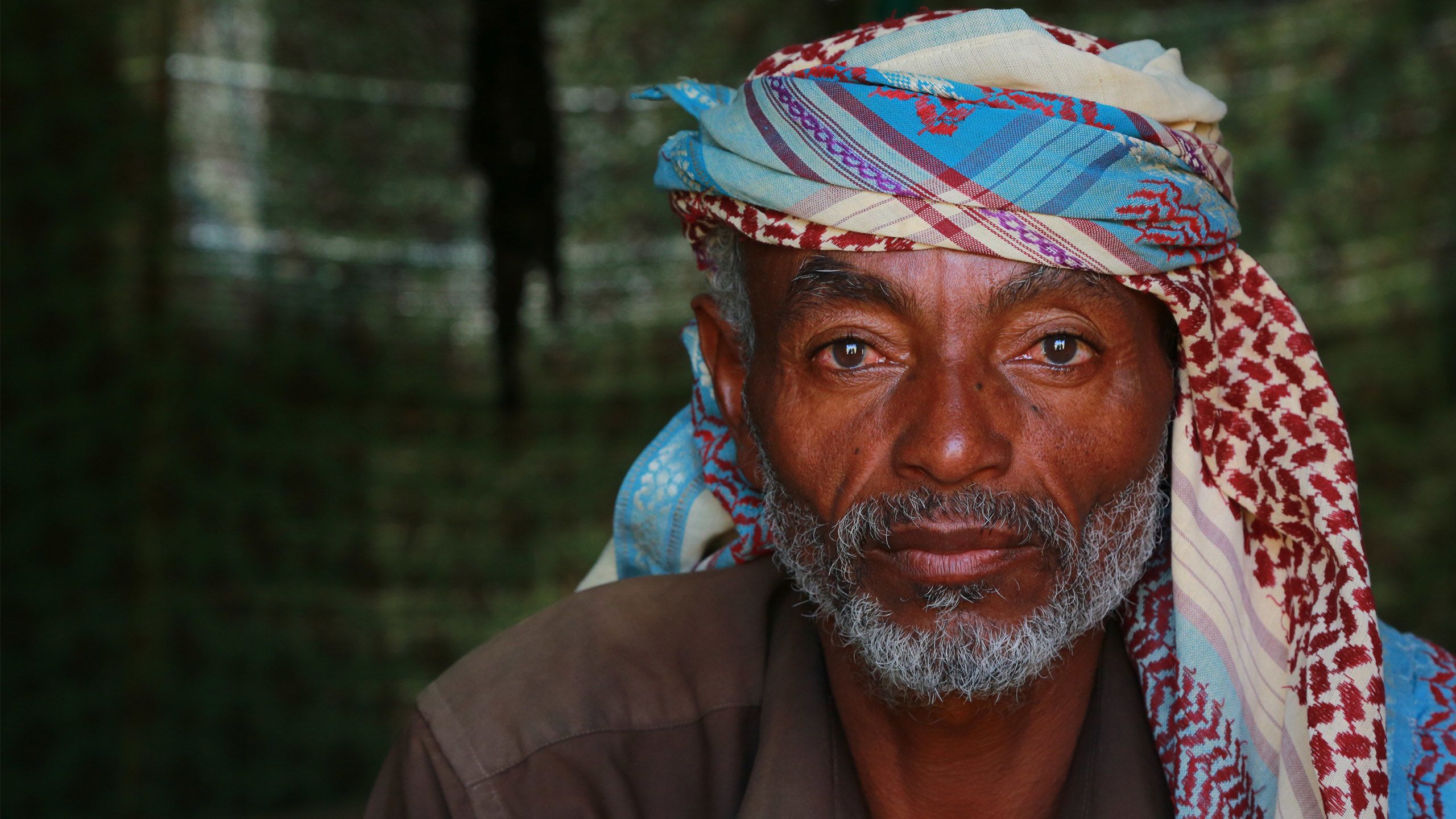
Muhsen Murhshed has farmed the land his whole life, but three years ago his family had to flee to a temporary camp outside the desert city of Ma’rib. “We used to live among green farmlands,” he says. “Here only dust and barren land surrounds us.”
Since February, intense battles in Ma’rib have threatened hundreds of thousands of displaced families like Muhsen’s. “The fighting gets nearer every day. Others have already fled this camp, but I have a large family and we have nowhere else to go.”
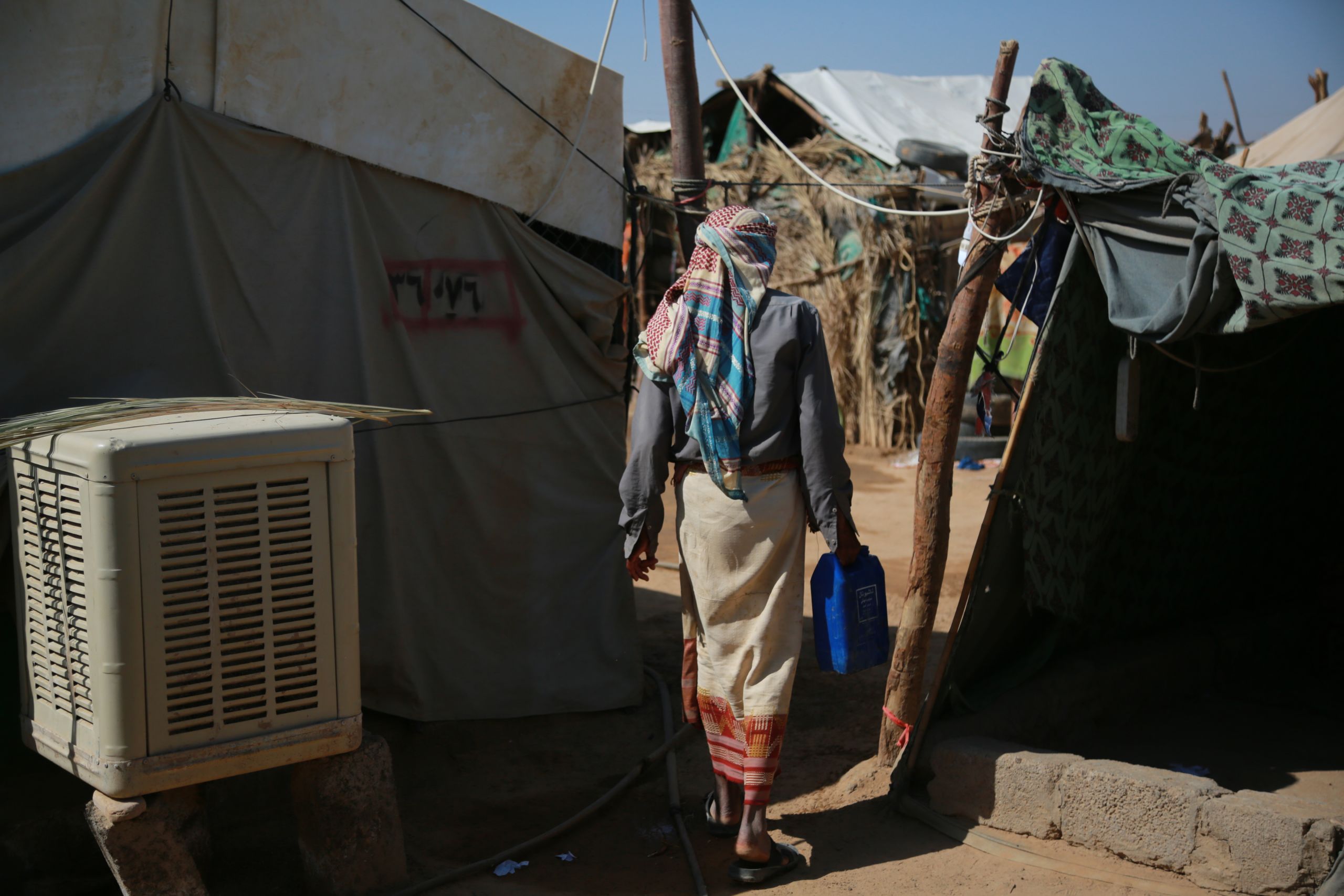
Photo: Hamza Al-Qadaimi/NRC
Muhsen walks through the camp to fetch water for his trees. “I planted some small flowering trees around my tent, as I love greenery. It is difficult for a farmer to live in a desert,” he says.

Photo: Hamza Al-Qadaimi/NRC
Photo: Hamza Al-Qadaimi/NRC

